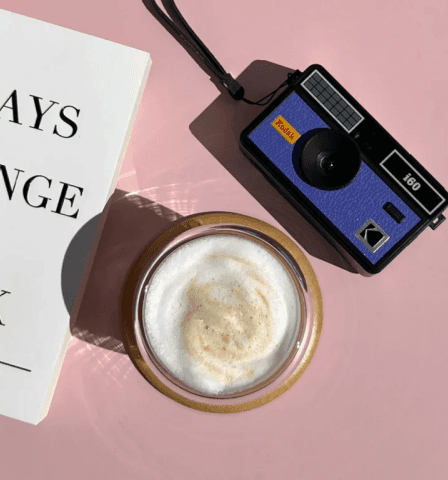💤 Sleep Tracking
Oura Ring:
Arguably the gold standard for sleep tracking. Oura delivers deep insights into your sleep cycles, readiness, and recovery using temperature, heart rate variability (HRV), and blood oxygen. It’s discreet, stylish, and focused.
Whoop:
Takes a performance-oriented approach. Whoop tracks sleep debt, disturbances, and time in bed, then translates that into a “Recovery Score” for training. It’s great for athletes or anyone training intensely.
Apple Watch:
Improving with each update, Apple Watch tracks basic sleep metrics and integrates them with your broader health ecosystem. But it lacks depth—think more "what time you went to bed" than "how well your body restored overnight."
Verdict:
If sleep is your #1 priority, Oura leads. Whoop follows for performance junkies, with Apple Watch trailing for casual insights.
🏃♂️ Fitness & Activity Tracking
Apple Watch:
The best all-rounder for workouts. GPS, activity rings, guided workouts, and third-party app support make it a strong pick for casual to serious athletes.
Whoop:
Built for data-hungry fitness freaks. Tracks strain (exertion), recovery, and effort vs. output. No screen, just raw insights and a solid companion app.
Oura Ring:
Tracks activity passively but isn’t built for workouts. It's more about balancing movement with rest than tracking reps or pace.
Verdict:
Apple Watch wins for mainstream fitness and training. Whoop is king for performance metrics. Oura is best for low-impact movers and holistic wellness fans.
❤️ Health Insights
Whoop:
Monitors HRV, resting heart rate, respiratory rate, and skin temperature. Sends red flags if something’s off, which makes it powerful for early illness detection.
Oura Ring:
Offers cycle tracking, temperature trends, and readiness scores. Excellent for long-term health awareness, but less reactive day-to-day.
Apple Watch:
Tracks heart rate, blood oxygen, ECG, and even AFib detection. Its health app is comprehensive, and it integrates with medical records in some regions.
Verdict:
Apple Watch excels for general health and integration. Whoop is great for early-warning signals. Oura is a stealthy companion for health trends and hormonal cycles.
🔋 Battery Life & Comfort
Oura Ring:
4–7 days of battery and feels like jewelry. Lightweight, durable, and doesn’t get in the way.
Whoop:
4–5 days of battery, with a charger that slides on while wearing. Soft, adjustable strap that feels like a fabric bracelet.
Apple Watch:
About 18 hours. Needs daily charging—often inconvenient for sleep tracking unless you build a charging routine.
Verdict:
Oura and Whoop dominate on comfort and battery. Apple Watch’s charging demands are a drawback for round-the-clock tracking.
🎯 So, Which One Should You Choose?
GoalBest OptionSleep OptimizationOura RingFitness PerformanceWhoopAll-Day VersatilityApple WatchHealth MonitoringApple WatchLow-Maintenance UseOura RingData-Driven RecoveryWhoop
Final Thoughts
There's no one-size-fits-all wearable. The Apple Watch is your go-to if you want a smart assistant + health tracker. Whoop is the pick for high-performance athletes who live for data. Oura Ring wins for minimalist wellness seekers who prioritize sleep, recovery, and long-term balance.
Whichever you choose, remember: tech can support your health journey—but it’s your habits that do the heavy lifting.
Want more insights like this? Subscribe to Daily Revive for weekly wellness breakdowns, productivity hacks, and lifestyle upgrades—all backed by science, not fluff.
Related Post
Latest Post
Subscribe Us
Get Subscribe To Our Latest News & Update
Single Post V2
Whoop vs. Apple Watch vs. Oura Ring: Which Wearable Is Right for Your Wellness Goals?
Mar 6, 2025
💤 Sleep Tracking
Oura Ring:
Arguably the gold standard for sleep tracking. Oura delivers deep insights into your sleep cycles, readiness, and recovery using temperature, heart rate variability (HRV), and blood oxygen. It’s discreet, stylish, and focused.
Whoop:
Takes a performance-oriented approach. Whoop tracks sleep debt, disturbances, and time in bed, then translates that into a “Recovery Score” for training. It’s great for athletes or anyone training intensely.
Apple Watch:
Improving with each update, Apple Watch tracks basic sleep metrics and integrates them with your broader health ecosystem. But it lacks depth—think more "what time you went to bed" than "how well your body restored overnight."
Verdict:
If sleep is your #1 priority, Oura leads. Whoop follows for performance junkies, with Apple Watch trailing for casual insights.
🏃♂️ Fitness & Activity Tracking
Apple Watch:
The best all-rounder for workouts. GPS, activity rings, guided workouts, and third-party app support make it a strong pick for casual to serious athletes.
Whoop:
Built for data-hungry fitness freaks. Tracks strain (exertion), recovery, and effort vs. output. No screen, just raw insights and a solid companion app.
Oura Ring:
Tracks activity passively but isn’t built for workouts. It's more about balancing movement with rest than tracking reps or pace.
Verdict:
Apple Watch wins for mainstream fitness and training. Whoop is king for performance metrics. Oura is best for low-impact movers and holistic wellness fans.
❤️ Health Insights
Whoop:
Monitors HRV, resting heart rate, respiratory rate, and skin temperature. Sends red flags if something’s off, which makes it powerful for early illness detection.
Oura Ring:
Offers cycle tracking, temperature trends, and readiness scores. Excellent for long-term health awareness, but less reactive day-to-day.
Apple Watch:
Tracks heart rate, blood oxygen, ECG, and even AFib detection. Its health app is comprehensive, and it integrates with medical records in some regions.
Verdict:
Apple Watch excels for general health and integration. Whoop is great for early-warning signals. Oura is a stealthy companion for health trends and hormonal cycles.
🔋 Battery Life & Comfort
Oura Ring:
4–7 days of battery and feels like jewelry. Lightweight, durable, and doesn’t get in the way.
Whoop:
4–5 days of battery, with a charger that slides on while wearing. Soft, adjustable strap that feels like a fabric bracelet.
Apple Watch:
About 18 hours. Needs daily charging—often inconvenient for sleep tracking unless you build a charging routine.
Verdict:
Oura and Whoop dominate on comfort and battery. Apple Watch’s charging demands are a drawback for round-the-clock tracking.
🎯 So, Which One Should You Choose?
GoalBest OptionSleep OptimizationOura RingFitness PerformanceWhoopAll-Day VersatilityApple WatchHealth MonitoringApple WatchLow-Maintenance UseOura RingData-Driven RecoveryWhoop
Final Thoughts
There's no one-size-fits-all wearable. The Apple Watch is your go-to if you want a smart assistant + health tracker. Whoop is the pick for high-performance athletes who live for data. Oura Ring wins for minimalist wellness seekers who prioritize sleep, recovery, and long-term balance.
Whichever you choose, remember: tech can support your health journey—but it’s your habits that do the heavy lifting.
Want more insights like this? Subscribe to Daily Revive for weekly wellness breakdowns, productivity hacks, and lifestyle upgrades—all backed by science, not fluff.
Type something …
Search
Latest Post
Explore Topics
Related Post
Single Post V3

I'm passionate about creating content, particularly in the realms of music, travel, and food. I love exploring new places and trying new dishes, and I find inspiration in the world around me. Creativity is my fuel, and I'm always looking for new ways to express myself.
More From Ezra Vale
Subscribe Us
Get Subscribe To Our Latest News & Update
Whoop vs. Apple Watch vs. Oura Ring: Which Wearable Is Right for Your Wellness Goals?
In today’s health-obsessed world, wearable tech has evolved from step counters into sophisticated wellness companions. Whether you're optimizing recovery, monitoring sleep, or tracking performance, three devices dominate the conversation: Whoop, Apple Watch, and Oura Ring. But how do they compare—and more importantly, which one fits your lifestyle? Let’s break it down.
Mar 6, 2025

💤 Sleep Tracking
Oura Ring:
Arguably the gold standard for sleep tracking. Oura delivers deep insights into your sleep cycles, readiness, and recovery using temperature, heart rate variability (HRV), and blood oxygen. It’s discreet, stylish, and focused.
Whoop:
Takes a performance-oriented approach. Whoop tracks sleep debt, disturbances, and time in bed, then translates that into a “Recovery Score” for training. It’s great for athletes or anyone training intensely.
Apple Watch:
Improving with each update, Apple Watch tracks basic sleep metrics and integrates them with your broader health ecosystem. But it lacks depth—think more "what time you went to bed" than "how well your body restored overnight."
Verdict:
If sleep is your #1 priority, Oura leads. Whoop follows for performance junkies, with Apple Watch trailing for casual insights.
🏃♂️ Fitness & Activity Tracking
Apple Watch:
The best all-rounder for workouts. GPS, activity rings, guided workouts, and third-party app support make it a strong pick for casual to serious athletes.
Whoop:
Built for data-hungry fitness freaks. Tracks strain (exertion), recovery, and effort vs. output. No screen, just raw insights and a solid companion app.
Oura Ring:
Tracks activity passively but isn’t built for workouts. It's more about balancing movement with rest than tracking reps or pace.
Verdict:
Apple Watch wins for mainstream fitness and training. Whoop is king for performance metrics. Oura is best for low-impact movers and holistic wellness fans.
❤️ Health Insights
Whoop:
Monitors HRV, resting heart rate, respiratory rate, and skin temperature. Sends red flags if something’s off, which makes it powerful for early illness detection.
Oura Ring:
Offers cycle tracking, temperature trends, and readiness scores. Excellent for long-term health awareness, but less reactive day-to-day.
Apple Watch:
Tracks heart rate, blood oxygen, ECG, and even AFib detection. Its health app is comprehensive, and it integrates with medical records in some regions.
Verdict:
Apple Watch excels for general health and integration. Whoop is great for early-warning signals. Oura is a stealthy companion for health trends and hormonal cycles.
🔋 Battery Life & Comfort
Oura Ring:
4–7 days of battery and feels like jewelry. Lightweight, durable, and doesn’t get in the way.
Whoop:
4–5 days of battery, with a charger that slides on while wearing. Soft, adjustable strap that feels like a fabric bracelet.
Apple Watch:
About 18 hours. Needs daily charging—often inconvenient for sleep tracking unless you build a charging routine.
Verdict:
Oura and Whoop dominate on comfort and battery. Apple Watch’s charging demands are a drawback for round-the-clock tracking.
🎯 So, Which One Should You Choose?
GoalBest OptionSleep OptimizationOura RingFitness PerformanceWhoopAll-Day VersatilityApple WatchHealth MonitoringApple WatchLow-Maintenance UseOura RingData-Driven RecoveryWhoop
Final Thoughts
There's no one-size-fits-all wearable. The Apple Watch is your go-to if you want a smart assistant + health tracker. Whoop is the pick for high-performance athletes who live for data. Oura Ring wins for minimalist wellness seekers who prioritize sleep, recovery, and long-term balance.
Whichever you choose, remember: tech can support your health journey—but it’s your habits that do the heavy lifting.
Want more insights like this? Subscribe to Daily Revive for weekly wellness breakdowns, productivity hacks, and lifestyle upgrades—all backed by science, not fluff.
















